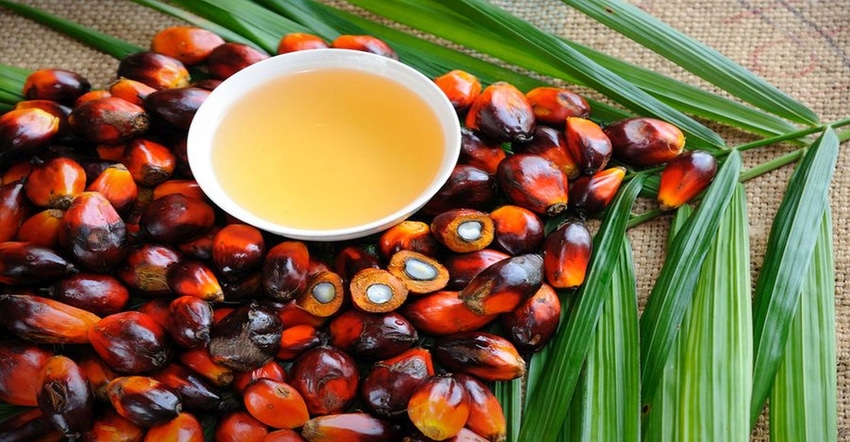In its efforts to build an ethical palm oil supply chain, Natural Habitats has helped fight deforestation, climate change, habitat destruction and human rights abuses.

Orangutan species endangerment, rapid deforestation, habitat loss and human rights abuses are all associated with conflict palm oil. These words and events have elicited consumer and industry responses to retreat and avoid palm oil all together or mask the bad press through greenwashing. But, it doesn’t have to be this way.
In 2008, Natural Habitats began its journey to build an ethical palm oil supply chain, first in Ecuador and then Sierra Leone. Through its Palm Done Right campaign, Natural Habitats aims to reframe the discussion and educate stakeholders—consumer, manufacturer, farmer—on the benefits of palm oil produced for social and environmental benefits.
To chip away at the destructive habits rampant in the industry, the tenets for building a mission-driven palm oil supply chain are multifaceted. See how Natural Habitats turns a product and supply chain associated with negative reaction into building a case for its production.
Transparency & Traceability
All of Natural Habitats’ palm oil is sourced from the Roundtable for Sustainable Palm Oil (RSPO) Identity Preserved (IP) certified supply chains. This is the highest level of RSPO traceability (among four options), linking all the way back to the single mill of origin and its supplier base, ensuring no conflict palm oil has entered the supply chain. This is an important instrument for mission-driven brands seeking guarantees—as they push the industry envelope—they have a direct positive impact in their own supply chains. The shifting momentum for innovators in the natural space is to take control and shorten the supply chain with partners that provide visibility into direct impacts, a shift from trading credits or mass balances where supply is comingled, and uncertified ingredients are still in the end product.
Instead of contributing to the clear cutting of forests for plantation palm oil, Natural Habitats’ goal is to recondition degraded land with Palm Done Right standards that focus on the empowerment of small-scale producers in the palm oil sector. Natural Habitats leverages RSPO traceability expertise, while pulling several other levers that deepen its relationship with supply chain partners to protect animals, farmers, communities, the environment and the consumer.
Palm Oil Grown for Good Protects:
Animals: To address issues of species endangerment and potential extinction, small-scale farmers reserve 15 percent of land for natural habitats and ecosystem dynamics to support biodiverse environments that protect wildlife.
Farmers: Standard palm oil production has pushed small-scale farmers off the land in favor of plantations with limited human rights and safety protocols, so rebuilding farmer trust is critical. Through Fair for Life fair trade standards, farmers receive an above-market wage, a social premium to put toward community health or infrastructure development, as well as education and trainings so farmers are empowered to be an active participant in decision-making.
Communities: By listening to farmers and the communities they represent, Natural Habitats supports needs and continues building community trust through additional programs such as construction of medical clinics, establishment of potable water sources, nutrition education and youth sports leagues, to name a few.
The Environment: Exchanging deleterious practices of mono-cropped palm oil production with multicropping and organic practices helps farmers become stewards of the land, with increased agency over their livelihoods. Multicropping allows for diversification of crops (palm trees and cacao for example) that have biodiverse ecological benefits, but also fosters economic stability for farmers to have multiple revenue streams from other supply chain markets. Organic practices help build healthy soil while removing costly synthetic inputs (e.g., pesticides, herbicides, fertilizers).
The Consumer: Palm oil is rich in antioxidants including vitamin E and 15-times more beta-carotene than carrots, making it a great source of vitamin A. The oil helps the body process these fat-soluble essential nutrients. Natural Habitats also uses a low heat processing technique to further improve nutrient quality. With a high smoke point—and as a high yielding perennial crop with year-round harvests compared to other vegetable oils (soybean, sunflower, canola)—households can incorporate this as a more sustainable and nutrient-dense cooking oil.
The Future
With all these mechanisms in place, Natural Habitats is aiming to heal the land through regenerative agriculture practices that rebuild the soil by sequestering carbon and ultimately reversing climate change. Mission-oriented brands including The Good Spread, Quinn Snacks, Nutiva and Dr. Bronners are among the companies now working directly with Natural Habitats. Furthermore, Natural Habitats is long-term in its mission, not only laying the groundwork to have widespread impact, but with the hope of one day pressuring hard-to-reach markets in Asia to change. As it stands, Indonesia and Malaysia produce 85 percent of the world’s palm oil with little to no government policies to protect people or planet. While imposing standards could fall on deaf ears, the growth of the Palm Done Right competitive market may challenge the status quo.
Editor’s Note: The Esca Bona Supplier Heroes is a recurring feature of suppliers that fuel innovation in the good food supply chain. These features explore the brand story, innovation, supply chain investment, research and partnerships that these companies undertake to improve the food system and consumer health. We select suppliers based on their commitment to the good food movement, their story, their sustainability initiatives, their focus on safe and efficacious ingredients, and their partnerships with their finished product customers.
Esca Bona is an event and brand spearheaded by New Hope Network that champions the good food movement by helping finished product brands improve their supply chain, support the people who create food, and best harness technology and innovation.
If you know of—or are—a supplier with a story to tell, email Sandy Almendarez, editor in chief, Natural Products INSIDER at [email protected].
About the Author(s)
You May Also Like






.png?width=800&auto=webp&quality=80&disable=upscale)